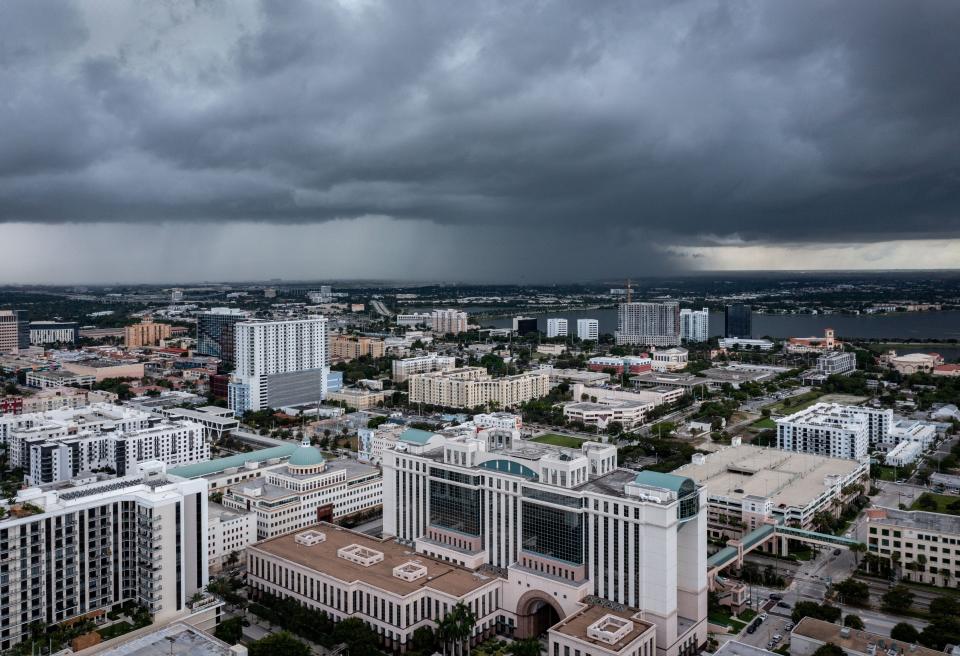Can condo owner fight 185% hike in insurance? Also, look at new law's impact on boards
Live in a home governed by a condominium, co-op or homeowner's association? Have questions about what they can and cannot do? Ryan Poliakoff, an attorney and author based in Boca Raton, has answers.
Beginning this year, a new federal law will require volunteer board members to provide substantial information to the federal government. On January 1, 2024, the Department of the Treasury began accepting beneficial ownership reports under the Corporate Transparency Act (the CTA). The CTA was passed in 2021 to address corporate fraud; including tax fraud, money laundering and financing for criminal enterprises.
Affected businesses (which include most community associations) must submit information on any person who has an ownership stake in or control over the company. That would include the corporate officers, but it realistically includes all directors, as well.
No later than the end of the year your community association will need to submit a beneficial ownership report, which will include information such as the directors’ names, birthdays, home addresses, and an identifying number such as a driver’s license, state ID or passport. All individuals with substantial control over the corporation must be listed on this report.
More: Resident cruises property in unmarked car, with camera looking for HOA rules scofflaws
It’s not currently clear if this will include property managers — this is a difficult question that community association lawyers and management companies are going to have to evaluate. Willful reporting violations carry significant civil and criminal penalties.
Every time there is a change in the control group or information regarding any of the “beneficial owners,” the corporation will have 30 days to correct or add to the report. For example, each time there is an election this information will have to be updated. Or, anytime a board member moves their primary residence, or gets a new ID, the association will have to update the report, as well.
It seems unlikely that the law was intended to apply to corporate entities like condominiums, HOAs and cooperatives. Lawmakers exempted charitable organizations from the law — but community associations, despite being not for profit corporations, are still subject to its requirements.
While various trade groups are attempting to either get clarification regarding community association registration requirements or to lobby for changes in the law, there’s no way to predict whether any amendments or clarifications (if they happen at all) will occur before the January 1, 2025 filing deadline.
So, until something changes, all community associations should plan on filing a beneficial ownership report before the end of the year.

Question: I currently live in a condo that has seen two massive increases in our insurance rates, without a breakdown of our coverage. I am wondering if I can request a breakdown of the coverage so I can determine where the extra expense is coming from.
As a layperson, can I reach out to insurance companies and receive quotes? I am licensed in property and causality insurance as well as life and medical insurance.
In the last 6 months, the HOA is claiming we are experiencing a 185% increase in our insurance alone, and the average increase in the Florida HOA market statewide was only 35% on average. This seems like to be a serious discrepancy and I am looking to see what I can do. Signed, D.P.
Dear D.P.,
Your insurance policies, now and for the past seven years, are all inspectable records. You can request to inspect and copy them and get all the coverage information you need. You can also ask to inspect correspondence between the insurance agent and the property manager.
My clients have experienced gigantic insurance increases. While I will take your word for the average increase across the state, I don’t know that I have a single client that went up only 35%. I have quite a few that went up 100% or more.
Remember that condominium and HOA insurance is nothing like private home insurance (although those rates have gone up quite a bit too). There are only a handful of insurers that are willing to write HOA policies in the state, and there’s just not a lot of comparison shopping that can be done.
You say that you are a licensed agent, but then you ask if you can reach out to insurance companies as a layperson. I’m not sure how that would work, but also you should not hold yourself out as a representative of your HOA, licensed or otherwise. Most insurance companies will speak only with the agent of record for a particular community; or at least someone representing that they are authorized to shop insurance on the HOA’s behalf.
You’re playing with fire to call around and represent that you have the authority to solicit quotes on your HOA’s behalf. Instead, I suggest you compare the policies first, and then prepare an analysis for the board breaking down the coverage and how you think they can save. It could be that you would prefer to reduce coverage in ways that the board does not support—and that’s just a policy question, rather than something that they’re doing wrong.
Ryan Poliakoff, a partner at Poliakoff Backer, LLP, is a Board Certified specialist in condominium and planned development law. This column is dedicated to the memory of Gary Poliakoff. Ryan Poliakoff and Gary Poliakoff are co-authors of "New Neighborhoods — The Consumer’s Guide to Condominium, Co-Op and HOA Living." Email your questions to condocolumn@gmail.com. Please be sure to include your location.
This article originally appeared on Palm Beach Post: Legal expert weighs in on skyrocketing condo insurance, new laws for boards

